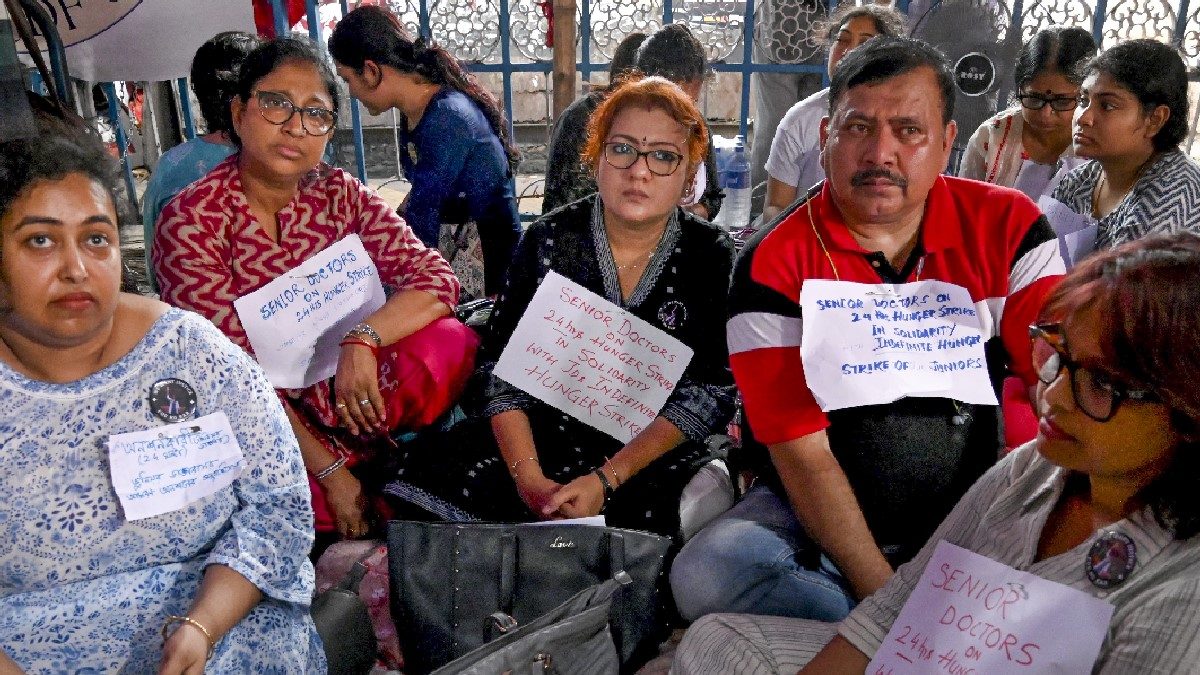The recent protests by junior doctors in West Bengal, sparked by the rape and murder of a colleague, have escalated into a wider conflict involving senior doctors and the state government. Amidst calls for justice and improved workplace security, the situation has been further complicated by a series of “mass resignations” submitted by senior doctors in support of their junior counterparts. The government, however, has dismissed these resignations as legally invalid, sparking a debate regarding the legal validity of such collective actions and the nature of the doctors’ protest.
Symbolic Resignations and Legal Interpretation
The West Bengal government has firmly stated that the collective resignation letters submitted by senior doctors hold no legal weight. The chief adviser to the state’s Chief Minister, Alapan Bandyopadhyay, has emphasized that individual resignation letters must be submitted in accordance with service rules. According to the government’s stance, the mass resignations are merely a symbolic gesture of solidarity rather than legally binding actions.
This interpretation centers on the legal requirement of individual resignation letters, which necessitates personal submission and specifies the conditions of resignation. The collective signatures on the letters, devoid of individual identification and addressing specific issues, do not meet these legal requirements.
The Power of Symbolism
While the government argues against the legal standing of the mass resignations, it’s crucial to recognize the power of symbolic actions. The doctors, by choosing this collective act, aimed to convey their strong disapproval of the events and express their solidarity with the junior doctors’ demands. This symbolism reflects a collective sentiment of outrage and a demand for action from the government.
The doctors, in submitting these letters, despite acknowledging their symbolic nature, aimed to bring attention to the pressing issue of safety and justice within healthcare facilities. This symbolic action, even without legal force, has effectively amplified the voices of the protesting doctors and raised public awareness about the wider issue.
Continued Service and Government Response
Despite the controversy surrounding the resignations, the government has assured the public that healthcare services have not been disrupted. Senior doctors have confirmed that they continue to attend their duties, ensuring the uninterrupted flow of medical services, especially during the crucial Durga Puja festival.
The government, however, maintains a steadfast stance regarding the mass resignations, rejecting them as legally valid and reiterating the need for individual resignations following proper procedures.
Addressing the Demands and Moving Forward
The government’s response to the junior doctors’ demands for justice, resignation of the health secretary, and enhanced workplace security remains under scrutiny. The government faces a crucial task of balancing its administrative stance on the resignations with addressing the genuine concerns raised by the doctors.
The core issues of safety, security, and justice within healthcare institutions require urgent attention. The government must actively engage with the demands and initiate concrete measures to address the concerns highlighted by the protests.
The Wider Context and The Future of Healthcare
The ongoing situation in West Bengal, involving doctors and the government, reflects a deeper concern regarding the working conditions and safety of healthcare professionals. Similar issues have been raised across the country, prompting calls for stronger safety measures and improved work environments within hospitals.
The symbolic mass resignations serve as a powerful reminder of the vital role healthcare professionals play and the need for governments to address their concerns. This incident offers an opportunity for reflection and dialogue, not just within West Bengal but also across the nation, regarding the security and well-being of healthcare workers.
Take Away Points
- The mass resignations by senior doctors, while symbolically significant, lack legal validity according to West Bengal’s government.
- The government’s focus on individual resignations raises questions about the efficacy of collective action in addressing workplace concerns.
- The incident highlights the urgency of addressing concerns related to safety, security, and justice within healthcare institutions.
- The protests have raised broader concerns about the working conditions and safety of healthcare professionals nationwide.
- This situation presents an opportunity for reflection and dialogue on creating a safer and more secure working environment for healthcare workers.




